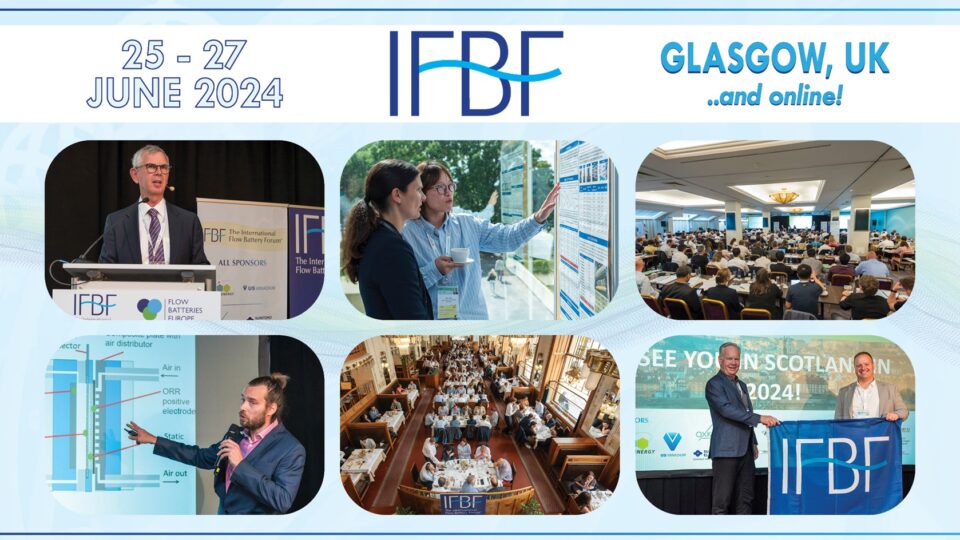At last year’s IFBF conference we addressed several major questions about the future deployment of flow batteries. We all agreed on the demand for electrical energy storage, and so our debates focussed on the commercial, technical and regulatory framework for flow battery deployment.
Long duration energy storage is discussed more and more frequently. Sometimes we don’t know how long is long. Many large-scale grid connected batteries in Europe have nameplate storage capacities of one or two hours, while in North America four hours is more commonplace. Where does this leave the flow battery marketing manager, who is looking to write the specification for their next system offering? There is a similar challenge trying to specify the overall power rating for the whole battery system; is biggest always best? At this year’s conference we hope to hear about some of the world’s largest flow battery systems – giving delegates the chance to see, examine and question performance and reliability at scale.
But network connected battery storage has not always been very large scale. We might look at the recent history of some of the lithium-ion battery systems and decide that building and deploying numerous small-scale systems – highly distributed and often installed in residential and small commercial buildings – has been a more efficient approach to penetrating the market. So, we will be hearing from developers of small and micro systems as well. This will give us an opportunity to discuss how large, medium, and small-scale flow battery systems can all be developed, and which market sectors are most appropriate for this safe, reliable and low-cost technology.
Flow battery technology does not stand still. New ideas are buzzing through the industry. There are better ways of optimising performance, validating state of charge, improving lifetimes, choosing better materials to reduce costs, and improved manufacturing processes. We have choices of different electrochemistries, both inorganic and organic types. Researchers will have the chance to meet and exchange ideas with manufacturers, developers, investors and users.
This year’s IFBF conference will be in Scotland. Ms Gillian Martin, The Minster for Energy, Just Transition and Fair Work for the Scottish Parliament has accepted our invitation and will speak about the role of electrical energy storage in Scotland’s future energy system. We will hear from local companies and institutions too including the research at Strathclyde University, the work of our host sponsors, Invinity, whose manufacturing plant is near to Glasgow, and from StorTera, another Scottish flow battery manufacturer. Both Invinity and StorTera are supported by the UK Government’s Department for Energy Security and Net Zero through the Longer Duration Energy Storage Demonstration Programme, and we will have an update on the programme and what this means for support for long duration energy storage.
Registration is now open for the IFBF, we hope to see you there in June. For tickets and further info: https://www.accelevents.com/e/international-flow-battery-forum-2024




